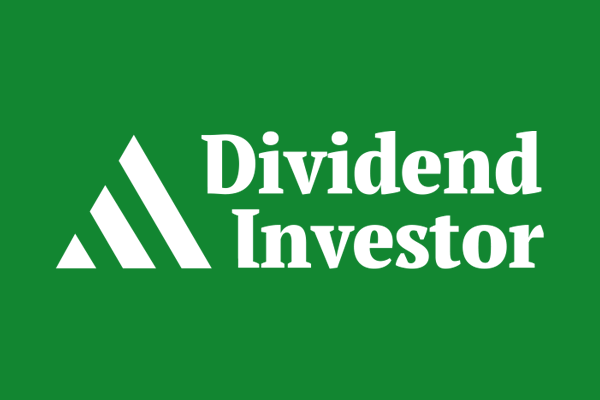BLOK ETF Dividend is a type of dividend investment that offers investors greater diversification and capital gains potential. This dividend investment strategy uses exchange-traded funds (ETFs) to provide access to a range of asset classes, such as stocks, bonds, commodities, and other investments. BLOK ETF Dividend provides investors with the opportunity to build a portfolio that is tailored to their needs, while benefiting from the high level of liquidity that comes with investing in an ETF.

Table Of Content:
- Amplify Transformational Data Sharing ETF (BLOK) Dividend History ...
- BLOK - Amplify ETFs
- BLOK Dividend History, Dates & Yield | Stock Analysis
- BLOK: Dividend Date & History for Amplify Transformational Data ...
- Amplify Transformational Data Sharing ETF (BLOK) Dividend Yield ...
- BLOK Dividend Yield 2022 & History (Amplify Transformational Data ...
- Amplify Transformational Data Sharing ETF (BLOK) Dividend History ...
- BLOK Dividend Information Amplify Transformational Data Sharing ...
- BLOK: A Diversified Way To Enter The Cryptocurrency Market ...
- Transformational Data Sharing ETF/Amplify ETF Trust (NYSE:BLOK ...
1. Amplify Transformational Data Sharing ETF (BLOK) Dividend History ...
https://www.nasdaq.com/market-activity/funds-and-etfs/blok/dividend-history
Amplify Transformational Data Sharing ETF (BLOK) ... BLOK BLOK DIVIDEND HISTORY ... Ex-Dividend Date; Dividend Yield; Annual Dividend $; P/E Ratio.
2. BLOK - Amplify ETFs
https://amplifyetfs.com/blok/ Amplify transformational data sharing ETF. ... BLOK does not invest directly in blockchain technology, but invests in companies actively involved in the ...
Amplify transformational data sharing ETF. ... BLOK does not invest directly in blockchain technology, but invests in companies actively involved in the ...
3. BLOK Dividend History, Dates & Yield | Stock Analysis
https://stockanalysis.com/etf/blok/dividend/ BLOK has a dividend yield of 27.77% and paid $5.75 per share in the past year. The dividend is paid once per year and the last ex-dividend date was Dec 29, ...
BLOK has a dividend yield of 27.77% and paid $5.75 per share in the past year. The dividend is paid once per year and the last ex-dividend date was Dec 29, ...
4. BLOK: Dividend Date & History for Amplify Transformational Data ...
https://www.dividend.com/etfs/blok-amplify-transformational-data-shrg-etf/
5. Amplify Transformational Data Sharing ETF (BLOK) Dividend Yield ...
https://seekingalpha.com/symbol/BLOK/dividends/yield
5 days ago ... Amplify ETF Trust - Amplify Transformational Data Sharing ETF (BLOK) dividend yield: annual payout, 4 year average yield, yield chart and 10 ...
6. BLOK Dividend Yield 2022 & History (Amplify Transformational Data ...
https://www.marketbeat.com/stocks/NYSEARCA/BLOK/dividend/ The annual dividend for Amplify Transformational Data Sharing ETF (NYSEARCA:BLOK) is $5.75. Learn more on BLOK's annual dividend history. How often does Amplify ...
The annual dividend for Amplify Transformational Data Sharing ETF (NYSEARCA:BLOK) is $5.75. Learn more on BLOK's annual dividend history. How often does Amplify ...
7. Amplify Transformational Data Sharing ETF (BLOK) Dividend History ...
https://seekingalpha.com/symbol/BLOK/dividends/history
Amplify ETF Trust - Amplify Transformational Data Sharing ETF (BLOK) dividend growth history: By month or year, chart. Dividend history includes: Declare ...
8. BLOK Dividend Information Amplify Transformational Data Sharing ...
https://marketchameleon.com/Overview/BLOK/Dividends/ View dividend data for Amplify Transformational Data Sharing ETF (BLOK) including upcoming dividends, historical dividends, ex-dividend dates, payment dates ...
View dividend data for Amplify Transformational Data Sharing ETF (BLOK) including upcoming dividends, historical dividends, ex-dividend dates, payment dates ...
9. BLOK: A Diversified Way To Enter The Cryptocurrency Market ...
https://seekingalpha.com/article/4480020-blok-a-diversified-way-to-enter-the-cryptocurrency-market Jan 17, 2022 ... Amplify ETFs has a great background in ETF management, which is highly beneficial for the product. · BLOK was the first crypto-related ETF in the ...
Jan 17, 2022 ... Amplify ETFs has a great background in ETF management, which is highly beneficial for the product. · BLOK was the first crypto-related ETF in the ...
10. Transformational Data Sharing ETF/Amplify ETF Trust (NYSE:BLOK ...
https://www.dividendinvestor.com/dividend-history-detail/blok/ Transformational Data Sharing ETF/Amplify ETF Trust (NYSE:BLOK) dividend history. Dividend declaration dates, ex-dividend dates, dates of record, ...
Transformational Data Sharing ETF/Amplify ETF Trust (NYSE:BLOK) dividend history. Dividend declaration dates, ex-dividend dates, dates of record, ...
What are some benefits of investing in BLOK ETF Dividends?
Investing in BLOK ETF Dividends offers several advantages. First, it provides investors with diversified exposure across many different asset classes without the need for individual stock selection. Additionally, this type of investment can be adjusted to reflect longer-term goals or shorter-term goals depending on investor preference. Finally, BLOK ETF Dividend offers investors the ability to benefit from tax efficiencies as well as higher liquidity than many other types of dividend investments.
What kind of returns can I expect from a BLOK ETF Dividend investment?
The returns from an investment in a BLOK ETF Dividend will depend on the performance of the underlying assets within the fund. Generally speaking, dividend yields tend to be higher than those of stocks and bonds over time but lower than those associated with commodities or other investments. Furthermore, it is important to note that past performance does not guarantee future returns which means there is no guarantee as to what return you may experience after investing in a BLOK ETF Dividend.
Are there any risks associated with investing in a BLOK ETF Dividend?
As with any type of investment there are always associated risks involved. It’s important for investors to consider risk factors such as market volatility and currency fluctuations when making decisions about where they should invest their money. Additionally, trading fees associated with buying or selling units within an ETF could impact overall returns and should be factored into any decision-making process.
How often will I receive dividends when investing in a BLOK ETF?
The frequency at which you receive dividends will vary depending on the fund itself as well as how often it distributes its earnings among shareholders. Generally speaking, dividend payments can range anywhere from monthly payments up to quarterly or even annually depending on the fund's structure and policies.
Conclusion:
Investing in a BLOK ETF Dividend has many potential benefits and can provide investors access to diverse asset classes while also enjoying potentially higher levels of liquidity compared to traditional dividend investments. Although there are inherent risks involved with all types of investing decisions it is important for each investor to understand their own financial goals and risk profile before making any decisions around where they should allocate their capital for optimal long term results .
